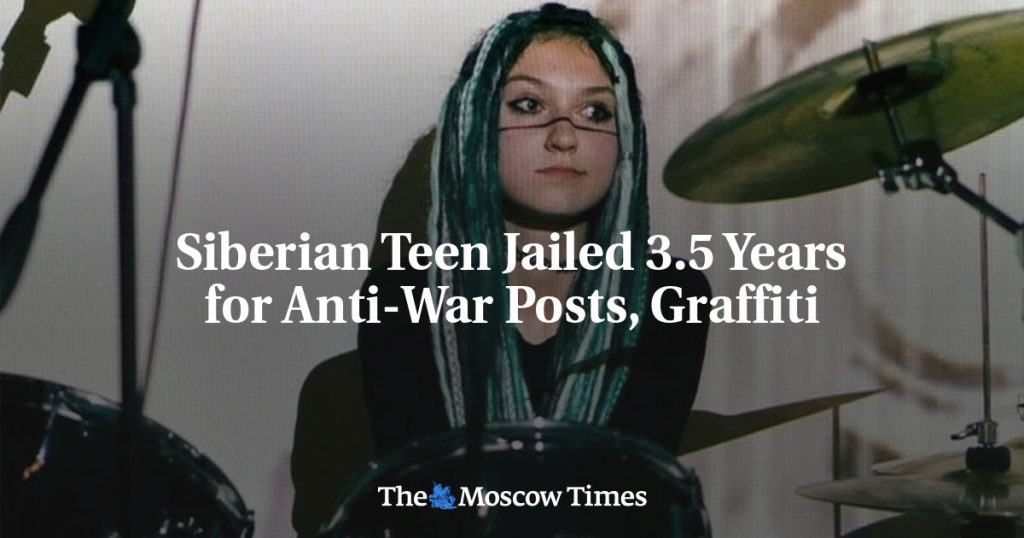A teenager from the Siberian city of Chita has been sentenced to 3.5 years in prison for anti-war graffiti and social media posts, marking the first time a minor has been imprisoned for their anti-war views in Russia. Lyubov Lizunova, a 17-year-old tenth-grader who describes herself as an anarchist, was detained alongside two others in October 2022, months after Russia invaded Ukraine. They were accused of spray-painting the phrase “Death to the regime!” on the side of a garage and running anti-war and animal rights channels on the Telegram messaging app.
Lizunova and one of her co-defendants were placed on the state financial watchdog Rosfinmonitoring’s registry of terrorists and extremists, allowing authorities to freeze their accounts without a court order. The First Eastern Military Garrison Court found Lizunova guilty on two charges of calling for terrorism and extremism, resulting in her being sentenced to three years and six months in a youth detention center, with a three-year ban on using the internet. The vandalism charges against Lizunova were dropped due to the expired statute of limitations, according to a legal aid group. Her co-defendants received sentences of six years in prison and one year and six months of penal labor for aiding and abetting calls for extremism and vandalism.
Prosecutors had requested a five-year prison sentence for Lizunova, but the court’s judgment allows for the possibility of appealing the verdict before it goes into effect. The case has sparked outrage and concern about the escalating crackdown on dissent in Russia, particularly among minors. The Moscow Times, an independent news source, has been labeled a “foreign agent” by the Russian government, prompting a plea for support to continue providing accurate and unbiased reporting on Russia. Despite attempts to silence dissenting voices, journalists vow to uphold their commitment to journalism and seek support from the public to carry out their critical mission.
The imprisonment of a teenager for expressing anti-war views through graffiti and social media has raised questions about freedom of speech in Russia and the government’s crackdown on dissent. Lizunova’s sentencing to 3.5 years in prison is seen as a harsh punishment for a minor voicing her opinions against the government and the war in Ukraine. The use of anti-terrorism and extremism charges to silence dissenting voices, especially among young people, reflects a growing trend of restricting freedom of expression in Russia. The court’s decision to ban Lizunova from using the internet for three years further restricts her ability to communicate and express her beliefs.
Despite the concerns raised by Lizunova’s case, the court’s decision has not deterred journalists and media outlets like The Moscow Times from continuing their work to provide accurate and unbiased reporting on events in Russia. The labeling of The Moscow Times as a “foreign agent” by the Russian government serves as a reminder of the challenges faced by independent news sources in the country. The plea for support from the public to ensure the continuation of independent journalism highlights the importance of maintaining a free press and upholding democratic values. The determination of journalists to resist efforts to silence dissent underscores the vital role of the media in holding those in power accountable and providing the public with truthful information.


